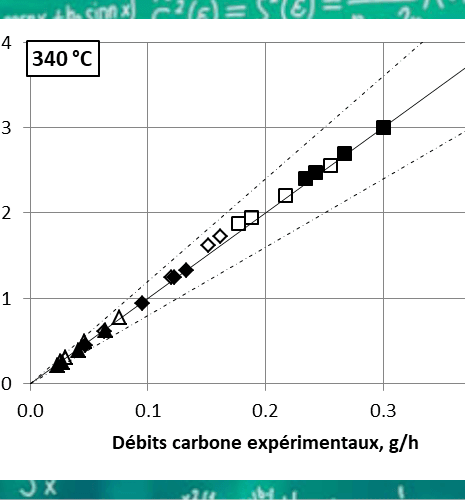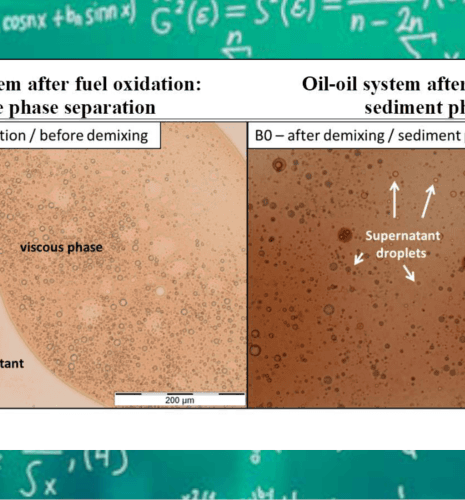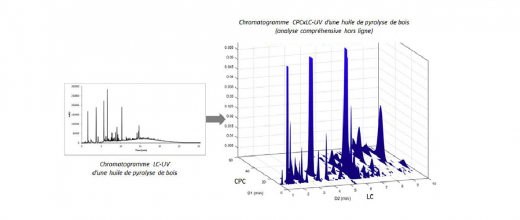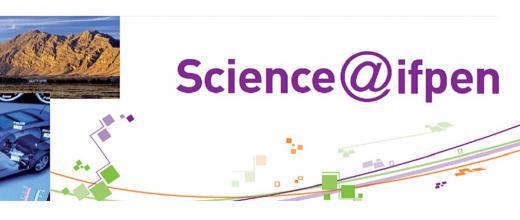
News in brief
Rock-Eval®: supporting soil research for the climate challenge
One way to decrease the amount of atmospheric CO2 is to reduce greenhouse gas emissions of fossil origin, but it is also possible to increase the quantities of carbon stored in the soil. (...) In the current context of climate change, understanding the evolution of carbon in the ground is critically important. It is for this reason that IFPEN wanted to study the potential offered by Rock-Eval®, a flagship of oil research...

News in brief
Pretreatment and deformulation of biomass-based products
The development of production processes for fuel and platform molecules from lignocellulosic biomass requires knowledge of the chemical composition, on a molecular scale, of the various liquid products generated...

Individual page
Maria-Fernanda ROMERO-SARMIENTO
Research Engineer / Technical Advisor
Organic Geochemistry PhD. HdR.
Sciences of the Earth and the Universe HDR
Organic Geochemistry PhD. HdR.
Sciences of the Earth and the Universe HDR
Maria-Fernanda Romero-Sarmiento joined IFP Energies nouvelles in 2010 as a research scientist in organic geochemistry. She holds a Ph.D. in Organic Geochemistry from the University of Lille (France)

Individual page
Charles-Philippe LIENEMANN
Charles-Philippe Lienemann - Scientific Advisor at the Physics and Analysis Division
Charles-Philippe Lienemann graduated at the University of Geneva (Switzerland) in 1993. He then joined University of Lausanne (Switzerland) within the group of D. Perret and Prof. J-C. Bünzli for his

News in brief
Rapid elementary metal mapping via LIBS
Effectively detecting the presence of very low quantities of elements in industrial materials is a major challenge. One such example is heterogeneous catalysis where contamination and poisoning of

News in brief
In situ characterization of the genesis of the active sites of hydrotreatment catalysts by X-ray Absorption Spectroscopy
Meeting environmental standards governing the sulfur content of oil-based fuels hinges around the optimization of hydrotreatment processes (HDT), involving, in particular, the development of more

News in brief
Spectrometry and chemometrics supporting processes
As a result of the deterioration in the quality of crude oils and the tightening up of environmental standards, refiners are modifying their processes in order to meet the growing demand for light

News in brief
Analysis of the inorganic contaminants in bioethanol, from source to end product
The use of renewable carbon-based biofuels is a solution aimed at reducing the climate impact of combustion engine vehicles. However, the diversity of potential biomass sources requires a

News in brief
Multiplying analytical dimensions to identify bio-based molecules
IFPEN is actively involved in the development of innovative processes for the conversion of lignocellulosic biomass into bio-based fuels and molecules. However, in chemical terms, the products
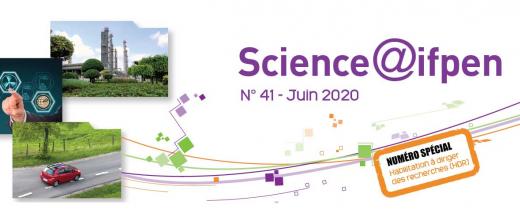
News in brief
Descriptors of oxygenated matrices for lignocellulosic biomass conversion (HDR 2017)
IFPEN offers a broad variety of processes and catalysts for the production of biofuels and bio-based molecules. In order to further develop them, it is necessary to characterize the key




